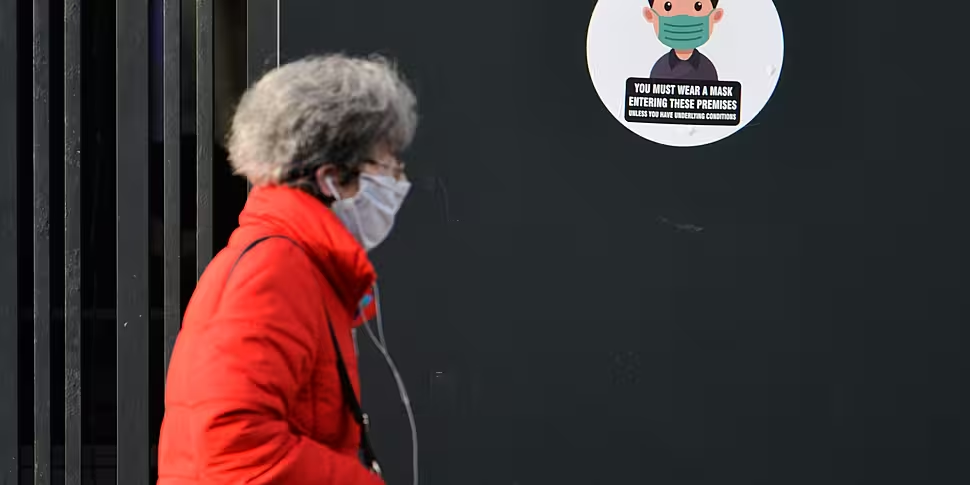The mask mandate should be dropped everywhere except healthcare settings, according to an immunovirology professor.
Liam Fanning was speaking as laws around the use of face masks in shops, schools and on public transport are expected to be dropped and replaced with guidance.
The Government is understood to be keen for the National Public Health Emergency Team (NPHET) to recommend the restrictions be eased.
The public health officials will meet on Thursday to consider their use.
Liam Fanning, professor of immunovirology at UCC, told Newstalk Breakfast people should decide for themselves.
"We have a large vaccinated population, a large number infected, the number per day is dropping week by week - such that we're approaching the kind of one per 1,000 now.
"I think now is a good time to give it a go, and let people make the choice as to whether they want to wear them or not".
He believes people can make their own risk assessments based on their circumstances.
"People make their own risk assessments on a daily basis with regard to all their activities.
"The well-worn path of 'If you're in the vulnerable category you make the risk assessment, you decide whether to stay or go' - and you decide whether to wear your mask or not".
But he says healthcare sectors should keep the mandate in place on an ongoing basis.
"I think now is a good time to drop the masks and let people make that decision themselves.
"I think in the healthcare setting... because you're dealing with vulnerable individuals who may be sick for other reasons, and may not handle a COVID infection all that well.
"There's some logic to having a further think about that.
"But in every other place I think it's time to kind of drop the mask".
'We get on with life'
He says while the pandemic is not gone, we need to keep moving forward.
"I wouldn't say it's gone... but I think we should look forward to the next few months of the daily figures becoming really absent from our daily consciousness.
"And that we get on with however we want to get on with life... and just enjoy the few months and let's deal with the winter that's coming with a coherent plan.
"While the virus is not necessarily seasonal, our living habits make it seasonal".
And Prof Fanning says a gap in second shots for those aged five to 11 needs to be filled.
"The latest data would indicate that only about 55/56,000 have their second dose.
"Now lots of them wouldn't have got their second dose because of being infected over the Christmas period.
"Their parents should ensure that they get the second dose three months after their infection.
"This is about the now, but also about future protection".









